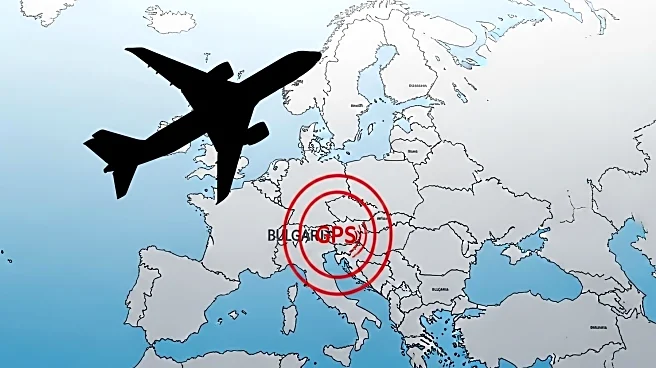What's Happening?
European Commission President Ursula von der Leyen's plane experienced GPS jamming over Bulgaria, suspected to be caused by Russian interference. The incident occurred during von der Leyen's tour of EU eastern flank nations, including Lithuania, Finland, Estonia, Latvia, Poland, Romania, and Bulgaria. The plane landed safely using backup navigation aids, but the event highlights ongoing concerns about electronic interference from Russia. Countries bordering Russia have reported increased electronic activity affecting flights, ships, and drones, raising security and safety concerns.
Why It's Important?
The suspected GPS jamming incident underscores the geopolitical tensions between the EU and Russia, particularly in the context of ongoing conflicts and security threats. It highlights the vulnerabilities in aviation navigation systems and the potential risks posed by electronic warfare tactics. The EU's response to such incidents may involve increased investment in defense and cybersecurity measures to protect critical infrastructure. This development also raises questions about the safety of air travel in regions close to Russia, potentially impacting airline operations and passenger confidence.
What's Next?
In response to the incident, the EU may consider enhancing its defense capabilities and strengthening coordination among member states to address electronic threats. This could involve deploying advanced technologies to detect and mitigate jamming and spoofing activities. Airlines operating in affected regions may need to implement additional safety protocols and explore alternative navigation systems. The situation may also prompt diplomatic discussions aimed at reducing tensions and preventing further incidents. Stakeholders, including aviation authorities and security experts, will be closely monitoring developments to ensure the safety and reliability of air travel.









